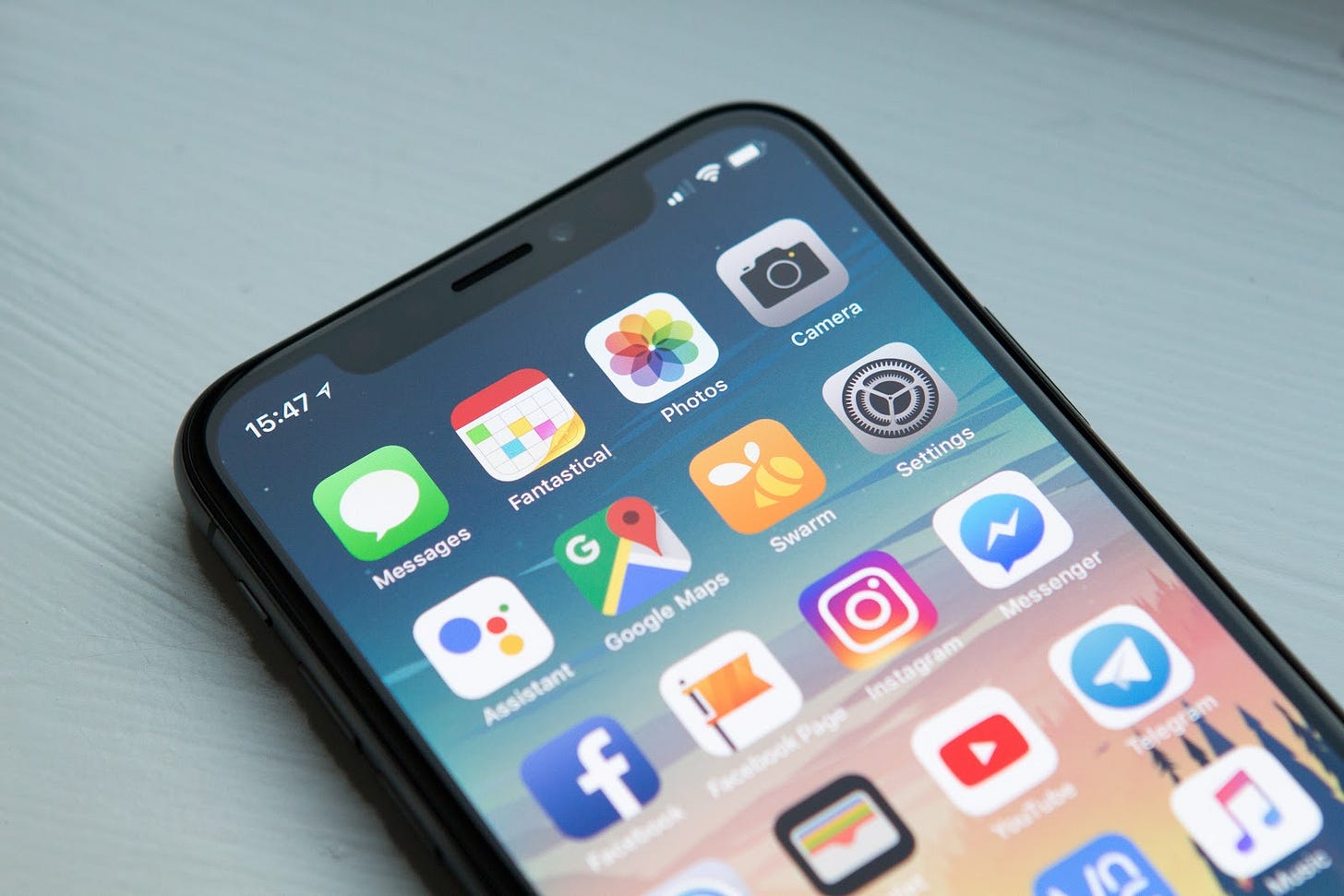#130 - Apple News & The Power of Defaults (From the Archives)
The Benefits of Home Field Advantage
Hi 👋 - To readers in the US, happy 4th of July 🇺🇸🎆🌭. Defaults have a powerful impact on behavior. Control the menu, control the choices. This week, dipping into the archives to look at the power of defaults. As always, thanks for reading. Enjoy the long weekend.
If you’re finding this content valuable, consider sharing it with friends or coworkers. ❤️
For more like this once a week, consider subscribing. ❤️
Over 125 million people use Apple News every month. News and other Apple apps comes pre-installed on all iOS devices and there are over 900 million active iPhones globally. This gives Apple a huge advantage in distribution and discovery, two crucial elements for scaling an online business. Controlling the default option is a powerful position that Apple uses to great advantage.
The Power of Defaults
Making an option the default increases the likelihood that it is selected. For example, Defaults and Donation Decisions, a study on how framing a question influences outcomes, found that:
the way in which a request to become a donor is framed will influence the outcome. In particular, the choice of default option may have significant effects on donation rates.
This study by Eric J. Johnson, professor of Marketing at Columbia Business School, and Dan Goldstein, Senior Principal Researcher at Microsoft, compared organ donation consent rates across Europe (think: DMV). Some countries require people to opt-in to donating. Others set it as the default. In other words, a natural experiment.
Their findings highlight the power of defaults. Participation rates in opt-in countries ranged from 4% to 28%. In contrast, where donating was the default, participation rates were between 85% and 100%. Defaults matter:

Nobel Prize winning economist Richard Thaler found the same dynamic with retirement savings. One of Thaler’s core ideas is:
If you want to encourage someone to do something, make it easy.
Good things happen when you put the desired outcome on the path of least resistance. Thaler recommended that companies automatically enroll employees into retirement savings plans while allowing them to opt-out. The power of defaults strike again:

Location, Location, Location
Now back to Apple - the company provides an example of using defaults to influence app usage. Apple has a monopoly on what apps come pre-installed on iPhones and iPads. Consequently, iPhones come loaded with a kitchen sink of its own apps including Maps, Music, and News. This means that Apple’s apps end up in the pockets of hundreds of millions of people:

Apple also benefits from this dynamic in Spotlight Search. Search your iPhone for “news” or “music” and you’ll see the power of default at work. In both cases, Apple returns its own app first:
The story is the same in App Store search. Search “music” and the first organic result is Apple Music (the Amazon Music result is an ad):
Control the menu, control the choices.
Home Field Advantage
The most valuable real estate on a smartphone is the home screen. Apple controls the iPhone home screen, giving it a leg up in distribution and discovery, two of the largest challenges in scaling an internet business. While a company like Spotify needs to build an app that’s great to get noticed, Apple’s apps get viewed by default. A corollary here is that while third-parties need to build great apps, Apple can skate by with good enough products. See: the early years of Apple Maps.
Once you’re aware of it, you’ll notice the power of defaults everywhere. This is why Google pays billions of dollars to be the default search on Safari. Or why Netflix and YouTube default to auto-play when you finish an episode. Here, both companies want you to watch another episode, so they put this choice on the path of least resistance.
In Default Design, James Clear, author of Atomic Habits, notes that:
Default choices are not inherently bad, but the entire world was not designed with your goals in mind. In fact, many companies have goals that directly compete with yours (a food company may want you to buy their bag of chips, while you want to lose weight). For this reason, you should be wary of accepting every default as if it is supposed to be the optimal choice.
Default choices are powerful. They’re a big reason for why over 125 million people use Apple News monthly. This is great for the person controlling the defaults, but it may not alway be great for you.
If you’re finding this content valuable, consider sharing it with friends or coworkers. ❤️
For more like this once a week, consider subscribing. ❤️
Disclosure: The author owns shares of Apple.







Great one, Kev. Like elsewhere (store) Apple recognizes the rails count for a lot. It's interesting to consider how this is framed when other companies do it - Acer and Samsung come to mind. Their defaults bring to mind bloatware! I remember learning that term ~10 years ago. The default apps experience can be a pleasing one if the user experience is considered. Of course, Apple wants to keep control over apps and file system - which is in the spirit of things.